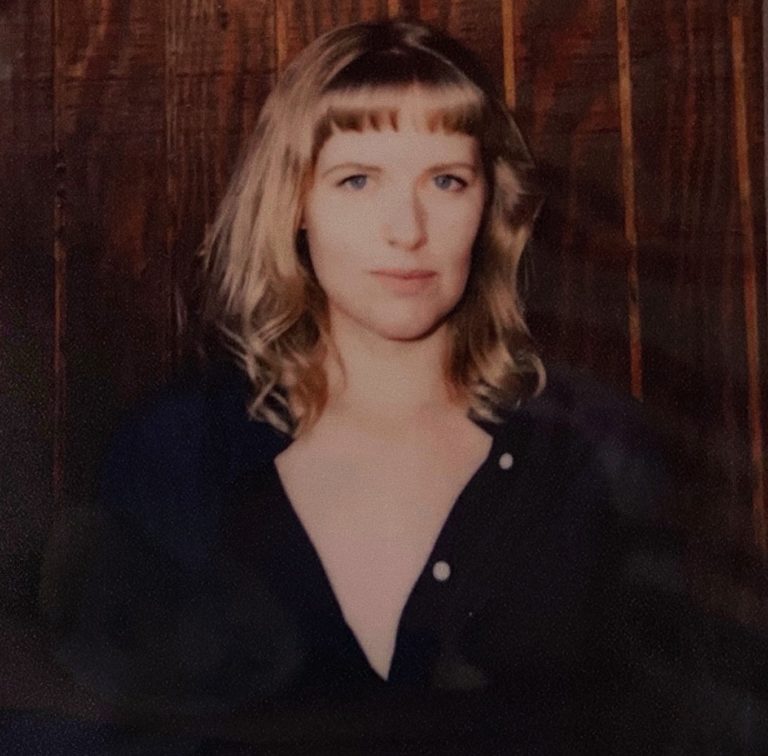
I’m being paid to take care of you, to be nice to you. I humor your abrasiveness because if I didn’t you would surely cause a scene. I’ve met men like you before. I tip-toe around you and laugh on cue. I engage in small talk as I freshen your drink. I pretend not to notice when your eyes linger too long on my body. When you touch my arm, however so lightly. But no, you cannot take a picture of me.
Sir, with your liquor-soaked breath falling stale against my skin, not taking into account any right I may have to personal space as you complement my amazing bangs (yes, I have great bangs — yes, I cut them myself — no, you can’t touch them). I don’t care if your daughter has her hair cut just like mine. I don’t care that you just want to show her how nicely I’ve styled mine. “Just one picture,” you say. But no, you cannot take a picture of me.
I’m here to welcome you with a smile, to sit you at a table with a nice view of the patio where you will sit and laugh and eat and drink for the next hour while I and my coworkers dote upon you, just how you like. Still, you insist on lengthening our contact. Making conversation. Throwing wilted compliments my direction, dead on arrival. I guide you and your family to your table, trailing close behind to show you the way, but not hinder you from your exploration of the room. We walk through the open kitchen, the chefs nodding at each of you as we pass through, just like they’re supposed to.
I smile like I’m supposed to, too, even as you stop short at the doorway watching the rest of your family exit to the patio. Your body turns swiftly to corner me in the small hallway between the patio door and the kitchen. I can hear my coworkers chattering behind me and I can feel their eyes peering around the dish bin toward us. You begin showering me with more of your compliments, observing different parts of me that you say you like, always coming back to my hair. My bangs. For how observant you are, you fail to notice how uncomfortable I am as I mask my anger with a smile and a nod; a “thank you, that’s kind of you to say.” But no, sir, you cannot take my picture.
I feel a chill as more sets of eyes fall on me, the rustling of my coworkers shifting in and out of the kitchen behind me growing louder as they start watching you watch me. Watching as you force me to exchange my self-respect for politeness. They watch and say nothing, do nothing — but I don’t blame them. No one ever really knows what to do in these moments. They sweep by too fast. We just wait for them to be over. Surrounded by people I am completely alone, frozen with something like stage fright in front of an audience of one, wondering what I should do next. But even at 27, I still don’t know what to do.
I feel just the same way as I did when I was 14 and men would yell at me from their car windows as I walked home from school. The same way as I did in community college when one particular male security guard would follow me around campus on his go-kart, always appearing where I least expected him, always claiming happenstance. Or when I lived alone in LA for the first time and a group of men followed me through the Home Depot parking lot as I walked to my car, calling me a bitch for not waving back at them. And now at 30, I’m still not sure that I know any better what to do.
Something I’ve noticed after years of living through these moments, threats, stares, and comments (not because I am particularly beautiful or bold or any other attribute that allegedly excuses unwanted attention, but because I am a woman alone in a world built by and for men) is that, in some cases, the pain is not found in the severity of the act, but in its subtlety. In the way it echoes around you just quietly enough so that you know it’s there but that can’t quite hear what it’s saying. You can feel the sting but can’t find the cut. And as if you’re going mad, you wonder to yourself, “If I can’t see it, if I can’t touch it, if I can’t give it a name, is it real?”
This man doesn’t touch me, but I can feel his eyes on me like hands and fingertips drawing across my skin — sharp, uninvited, unstoppable. And even after I repeatedly tell this man he cannot take my picture, I eventually give in. I let him pull out his phone and aim its camera lens at me. I watch him pinch the screen, focus in on me, and tap-tap-tap. And I smile for him, too. I diffuse the situation in order to put an end to the humiliation he was causing me in front of my new coworkers, at my new job. I let him take the pictures of me.
And then, in a moment it is over. I walk the man to his family and sit him at his table with a nice view of the patio at the back of the restaurant. And then the world just keeps spinning, the guests keep coming, and I watch absently as if from a distance as the restaurant fills and empties over and over again throughout the night. I walk past the man’s table and return his smile over and over again. Because the customer is always right, and I have no other choice.
So, no, sir, you cannot take my picture — but you did it anyway.
Kellie Kreiss is a writer and editor based in Los Angeles, CA. As a writer, she focuses largely on creative non-fiction storytelling and is currently working on a collection of short stories. As an editor, she specializes in memoir and creative non-fiction, and has published articles covering a variety of topics including history, relationships, design, and sustainability.



